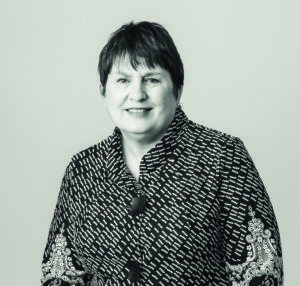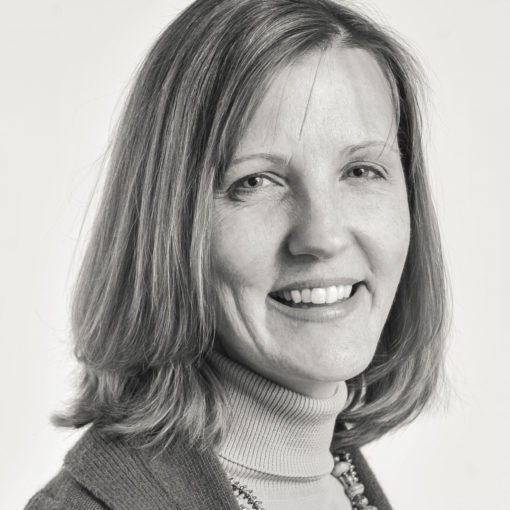
Elisabeth Buck | President, United Way of Central Iowa
The Idea: If everyone in Central Iowa asked “How can I help?” when making decisions, we could create a place where everyone ― not just two-thirds of our population ― thrives.
How can I help? This one question is how we could end poverty in Central Iowa in the next 35 years.
If each of us ― as business owners, hiring managers, developers, employees, teachers, church members, community organizers and neighbors ― asked ourselves this one question as we make decisions, then we could create a place where everyone thrives.
Central Iowa is a great community for two-thirds of our population. But for the one-third who do not earn enough to pay for food, housing, child care and other basic needs, our community is a place of daily struggle. Most of these individuals are working and still not earning enough.
In 2014, United Way of Central Iowa brought our community together to develop the OpportUNITY plan. The plan identifies eight main barriers that prevent Central Iowans from becoming financially stable and lays out action steps to break down those barriers. No one solution will end poverty, but if we work in all these areas at the same time, we can make progress.
We have engaged more than 2,000 partners in implementing the OpportUNITY plan and are seeing success. Yet we are a long way from engaging our entire community that is more than a half-million strong.
If we could adopt one framework that would guide our actions for the future, we would take a much bigger step. It starts with: How can I help? And more important, how are the decisions I am making impacting my whole community?
For example:
- For the hiring manager who is trying to attract talent in a workforce that is near full employment, you could ask: How can I help all Central Iowans have an opportunity to apply? Jobs that require a high school diploma up to an associate degree are the hardest to fill. Increasingly employers are asking for a four-year college degree, while two-thirds of the workforce doesn’t have a college degree. According to a report from Harvard Business School, major companies are finding that nurturing nongraduate talent leads to employees staying longer, creating a benefit to everyone.
- For the business owner or policymaker who wants to grow our economy, you could ask: How can I help build a workforce that supports economic growth? In Iowa, nearly 20,000 parents quit a job, do not take a job, or greatly change jobs because of child care issues. Most families — 95 percent — who use Child Care Assistance are working but quit if a small raise pushes them above the program’s threshold. Offering affordable child care options helps everyone.
- For the neighbor who wants to make a difference, you could ask: How could I have any impact? More Central Iowans are experiencing daily stress. Research shows that loneliness can be as damaging as smoking 15 cigarettes a day. We can invite conversation with those we meet and provide support, such as the blessing boxes placed around Ankeny, which offer food and personal hygiene items for anyone to take.
- For the developer or planner who is considering a new project, ask: How can I create a community? This involves looking at the people who might occupy that space and their access to affordable housing, transportation and retail. Research shows that a child’s prospects brighten when they grow up in economically diverse neighborhoods.
We all can take actions. We invite everyone to find their place in our community’s OpportUNITY plan at www.opportunitydsm.org.
Think about what Central Iowa would look like if 195,562 more Central Iowans (or everyone who lived here) earned enough to thrive. Our children would do better in school because all kids could start the day ready to learn. Our community would be safer as all families have the chance to make a productive living. Our workplaces and our community would be healthier as more Central Iowans feel a sense of purpose and experience less stress.
If we want to make Central Iowa a great community ― if we want to grow at the pace we have in the past several years ― we need to think about everyone who lives here and ensure that not just two-thirds are given a chance to thrive. It starts with a new framework for how we work together. >


